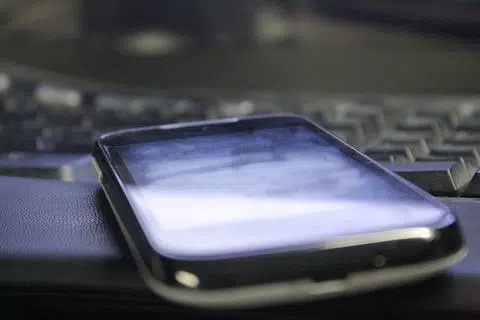We are just weeks away until school is out for the summer and according to the Nova Scotia Teachers Union, the first year of the cellphone ban went well.
Grades kindergarten to 6 must have their phones turned off and stored out of sight, while for Grades 7 to 12, phones need to be turned off during class time.
President Peter Day tells our newsroom, overall, it was positive.
“Students are more engaged, less distracted, it’s one less thing teachers have to compete with,” says Day.
Not only that, but he also says, even students seem to appreciate it.
“To have that opportunity to make connections in the classroom, to be part of the group discussions and activities that are happening. They’ve gotten used to it,” adds Day.
He adds, he’s not surprised students have taken the ban well.
“They won’t tell you this, especially teenagers, but they like being in school for the most part. Our students enjoy being part of the school community and having that opportunity to engage in face-to-face, real time contact with other human beings,” says Day.
A few flaws
Any repercussions for breaking the rules on the cellphone ban is on a school-by-school basis.
Day says not all schools were consistent when pushing the rules and some students were less vigilant on following them.
“I don’t know if it’s because the admin themselves don’t have the support they need to properly follow through but a lot of times the issues that tend to be happening come from students who have a whole lot more going on than just their cell phones in class,” adds Day.
He says that issue is much more complex and part of a greater problem.
Day adds, it’s crucial the province reiterate the policy to families and students and that it is talked about at home.
“Have conversations with your kids about using their cell phones in class or not having them so they can focus on the lesson.”










